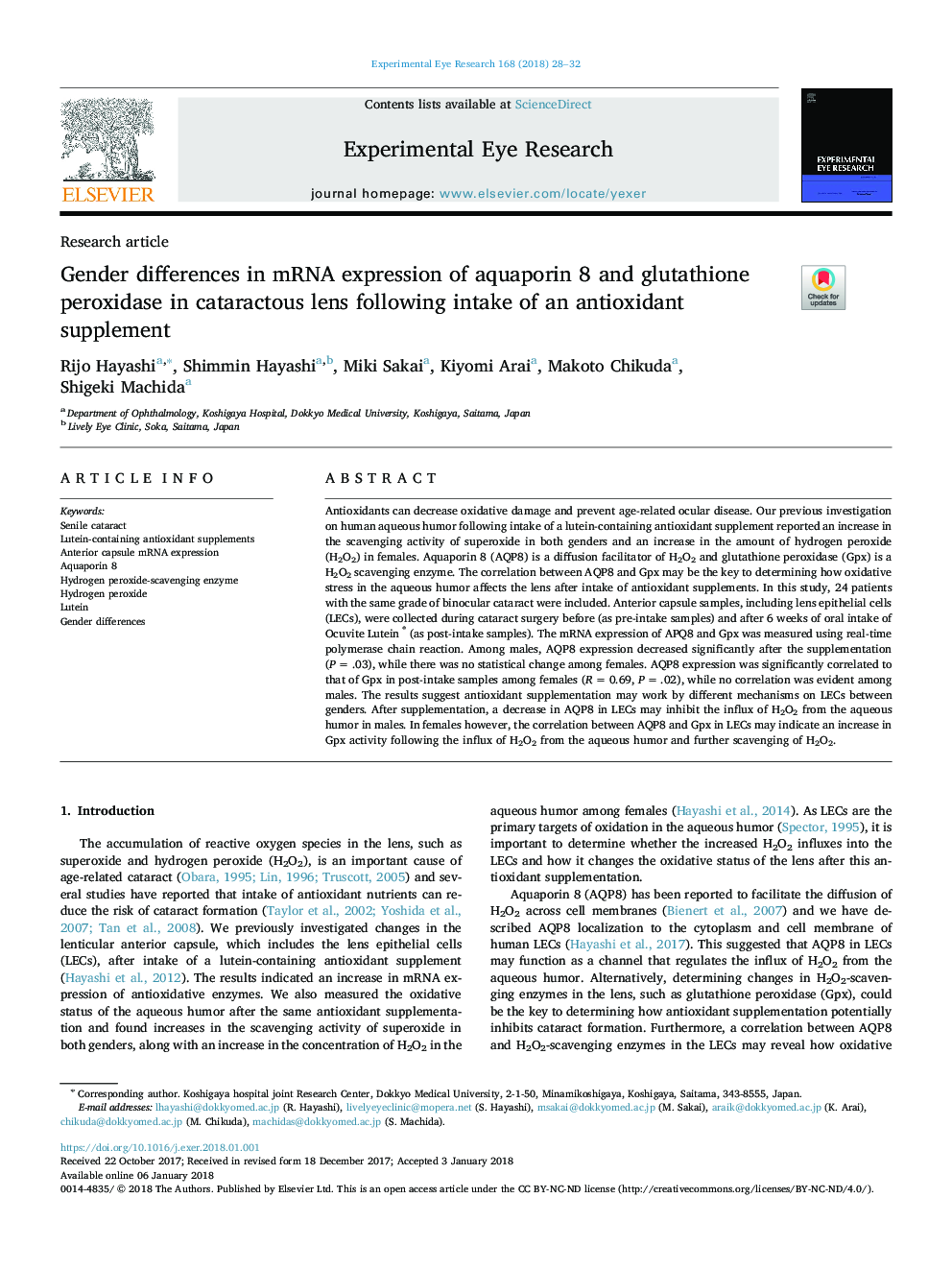| Article ID | Journal | Published Year | Pages | File Type |
|---|---|---|---|---|
| 8792036 | Experimental Eye Research | 2018 | 5 Pages |
Abstract
Antioxidants can decrease oxidative damage and prevent age-related ocular disease. Our previous investigation on human aqueous humor following intake of a lutein-containing antioxidant supplement reported an increase in the scavenging activity of superoxide in both genders and an increase in the amount of hydrogen peroxide (H2O2) in females. Aquaporin 8 (AQP8) is a diffusion facilitator of H2O2 and glutathione peroxidase (Gpx) is a H2O2 scavenging enzyme. The correlation between AQP8 and Gpx may be the key to determining how oxidative stress in the aqueous humor affects the lens after intake of antioxidant supplements. In this study, 24 patients with the same grade of binocular cataract were included. Anterior capsule samples, including lens epithelial cells (LECs), were collected during cataract surgery before (as pre-intake samples) and after 6 weeks of oral intake of Ocuvite Lutein ® (as post-intake samples). The mRNA expression of APQ8 and Gpx was measured using real-time polymerase chain reaction. Among males, AQP8 expression decreased significantly after the supplementation (Pâ¯=â¯.03), while there was no statistical change among females. AQP8 expression was significantly correlated to that of Gpx in post-intake samples among females (Râ¯=â¯0.69, Pâ¯=â¯.02), while no correlation was evident among males. The results suggest antioxidant supplementation may work by different mechanisms on LECs between genders. After supplementation, a decrease in AQP8 in LECs may inhibit the influx of H2O2 from the aqueous humor in males. In females however, the correlation between AQP8 and Gpx in LECs may indicate an increase in Gpx activity following the influx of H2O2 from the aqueous humor and further scavenging of H2O2.
Related Topics
Life Sciences
Immunology and Microbiology
Immunology and Microbiology (General)
Authors
Rijo Hayashi, Shimmin Hayashi, Miki Sakai, Kiyomi Arai, Makoto Chikuda, Shigeki Machida,
